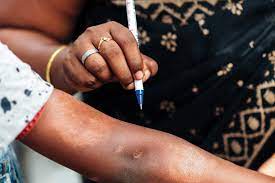Inadequate information and a lack of targeted emotional support are making the transition to fatherhood a challenging experience for many men, according to a recent review published in BMJ Open. The review highlights the need for greater attention in clinical practice, antenatal services, and research on fathers’ unique experiences during the perinatal period—the span from pregnancy to the first 12 months after birth.
As new parents prepare for childbirth, the journey to fatherhood can be particularly stressful and isolating for men, often demanding major lifestyle adjustments. According to the review, this life phase—marked by physical, psychological, and social changes—can create substantial stress as men navigate new responsibilities and shifts in identity. Many new fathers feel excluded, ill-prepared, and unsupported, leading to negative impacts on their mental health and overall well-being.
To better understand fathers’ experiences, the researchers analyzed 37 studies from an initial 2,475, conducted in countries including the UK, Australia, and the United States, involving over 1,600 fathers. This comprehensive analysis identified significant challenges commonly faced by fathers, especially in relation to mental health and limited resources during the transition to parenthood.
Key Findings: Fathers’ Challenges and Mental Health Struggles
The study synthesized findings from multiple sources, identifying four main challenges faced by fathers during the perinatal period:
- Strained Relationships: Many fathers reported increased tension and a decrease in intimacy with their partners as they adjusted to new roles and responsibilities.
- Unclear Identity and Societal Expectations: Fathers often struggled with conflicting societal expectations, feeling pressure to embody traditional roles as protectors or providers, while feeling uncertain of their roles within the family.
- Feelings of Exclusion: A sense of being left out, both in healthcare settings and in the mother-child relationship, was common among fathers. This exclusion often began during pregnancy, when physical aspects of gestation understandably centered on the mother, leaving fathers feeling like bystanders.
- Pressure to Uphold Masculine Ideals: Many fathers struggled with maintaining conventional masculine ideals, such as strength and self-reliance, which discouraged them from seeking emotional support or acknowledging the difficulties of new parenthood.
Many fathers expressed surprise at the exhaustion and demands of their new roles, describing moments of emotional strain and symptoms resembling postnatal depression. Despite these challenges, fathers often felt there was no appropriate mental health support for them, which deterred them from seeking help. This, combined with a perceived expectation to remain resilient, compounded their feelings of isolation.
Lack of Tailored Support
Fathers in nearly half of the studies reported feeling underinformed about parenting, especially in areas such as breastfeeding and managing crises. They expressed frustration at the lack of antenatal classes or information sessions geared toward their needs, often feeling that support for fathers was not prioritized. This gap in targeted resources left them feeling unprepared, which further affected their confidence as new parents.
Recommendations for Change
The review authors advocate for clinical guidelines that specifically address paternal perinatal mental health. They recommend that healthcare providers allocate time during perinatal appointments to discuss fathers’ well-being, helping to reduce stigma and societal expectations that might prevent men from reaching out for support. By addressing these needs, healthcare systems can contribute to a healthier and more supportive transition to fatherhood.
The researchers acknowledge limitations in the reviewed studies, noting that most were conducted in Western settings with predominantly white, educated participants. They call for further research on fatherhood experiences across diverse cultures and backgrounds to better inform global approaches.
The authors conclude, “It is clear that fathers require equal emotional and practical support to mothers during this period… creating a more positive transition and parenting experience.” They hope these findings will spur the development of resources and support that recognize fathers as integral and equally affected participants in the journey to parenthood.
For more information, see: Exploration of fathers’ mental health and well-being concerns during the transition to fatherhood, and paternal perinatal support: scoping review, BMJ Open (2024). DOI: 10.1136/bmjopen-2023-078386.












